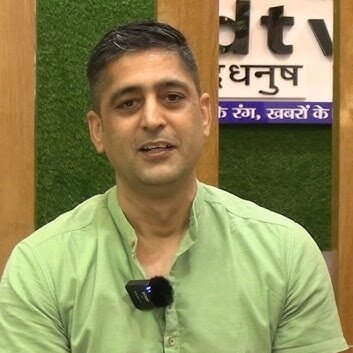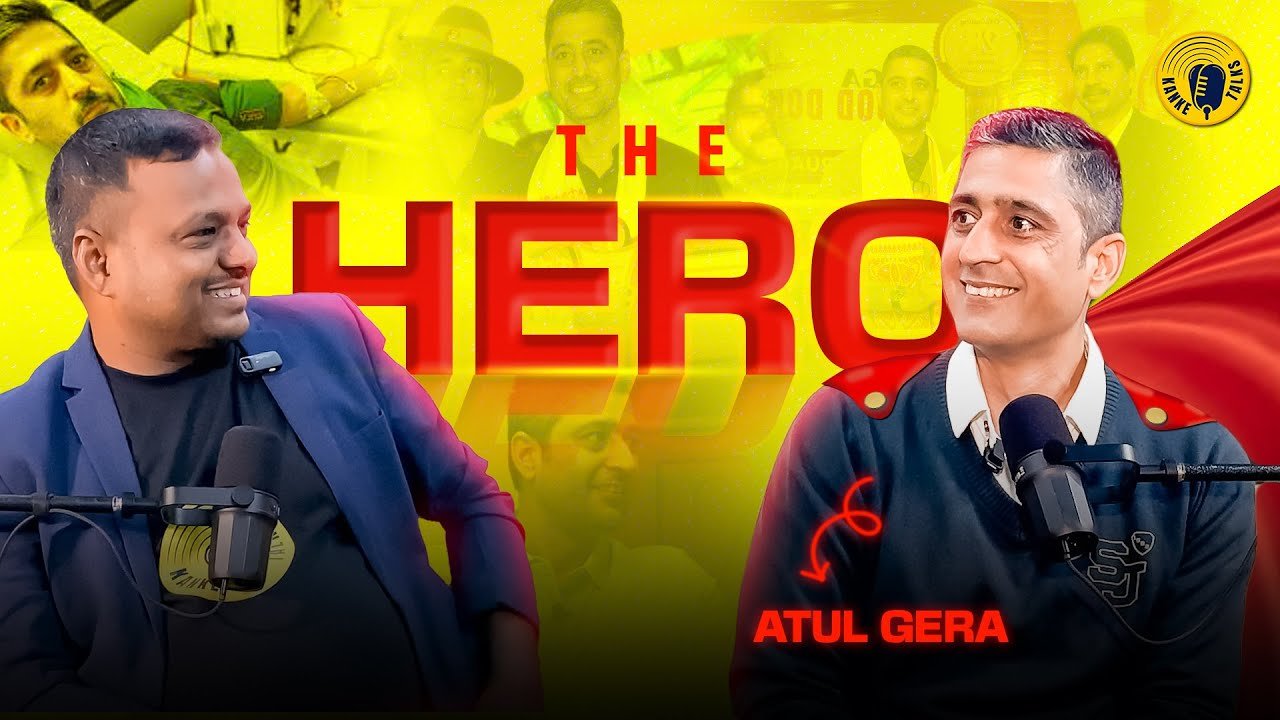It’s past midnight in Ranchi. A message pops up in a WhatsApp group: “Urgent. One unit of blood is needed at RIMS.” Before anyone can finish reading, the reply flashes in — “Atul is there.”
There’s something comforting in those three words.
For over a decade now, Atul Gera has been the name people remember in moments of panic — when a life hangs in the balance, when a patient is bleeding out, or when hospitals say there’s no blood available. He doesn’t wear a cape. Nor does he sit in high offices. But he shows up. Always.

How Does Someone Become This Committed?
Atul never planned to be a hero. He never imagined that one day his name would be known across the city, not for power or politics, but for kindness and presence.
“I don’t know where the motivation comes from,” he says. “It’s just how I’ve always seen the world — if you have more, you share. If you can help, you do.”
This philosophy — simple, almost childlike — became the driving force behind his founding of Life Savers, a voluntary group of blood donors and supporters. No office. No funding. Just people helping people.
And yet, behind that modest explanation lies a relentless routine. Blood donation calls come in at all hours. Emergencies don’t wait for convenience. But Atul never stops. Over time, being available became a part of who he is.
“It’s like breathing now. A call comes, and I respond — not because I must, but because I can.”
The Human Touch Behind Every Unit of Blood
What most of us forget is that behind every successful transfusion lies a web of complex logistics — a willing donor, a functioning blood bank, a hospital that cooperates, and policies that protect the patient. Atul became the link between all of these.
He isn’t just a facilitator; he’s an advocate. He’s fought against unethical practices in blood banks, lobbied for policy changes, and even staged protests to ensure blood remains free and safe for those who need it most.
One particular sit-in in 2021 became a turning point. The government had stopped charging for blood processing — a win, Atul thought. But later, private hospitals started charging patients anyway. Furious at the deception, Atul and his team staged a protest. Their voice reached the Chief Minister’s office. Within days, money collected unfairly was returned to patients.
But Atul didn’t stop there.
Not Just About Blood — Fighting for Health Rights
Atul’s activism gradually extended beyond blood. He began advocating for patient rights, raising concerns about private hospitals charging Ayushman Bharat beneficiaries. “If the government is already paying, why should poor patients pay from their pockets?” he asked.
He exposed practices where people were charged ₹1050 for a unit of blood that should’ve been free. He fought hospitals demanding money from Ayushman-insured patients and even started educating them on where and how to file complaints.
His voice reached beyond Ranchi, even as he stayed grounded — often cycling through the city, meeting families, motivating donors, and attending awareness camps.
A Ride, A Crash, and A Lesson in Humanity
One night, while returning home, Atul witnessed a young man crash his scooter into his car. The boy was drunk, bleeding, and alone.
In those chaotic moments, Atul could’ve fled — like many would — to avoid police harassment or legal entanglements. But he didn’t. He rushed the boy to the nearest hospital, only to be denied treatment. No ambulance. No urgency. No help. Eventually, Atul found a way to get the boy to RIMS, but not before witnessing the failures of a system meant to save lives.
“I kept thinking — if I hadn’t stayed, would this boy have died?” he said. Even worse, once the boy was stabilized, the police accused Atul of hitting him. Despite being a Good Samaritan, he was harassed, not honored. But Atul didn’t back down.
“This is why people don’t help,” he sighed. “Because the system punishes the good.”
Battling Drug Abuse, One Classroom at a Time
Apart from healthcare, Atul is also on the front lines of another silent war — drug abuse among the youth.
He works with police, NCB, and CID to conduct school sessions on substance addiction. What he uncovers is terrifying — 12th-grade students committing suicide due to gambling debts; children addicted to online gaming and pan masala promoted by celebrities. He’s seen how influencers normalize addiction. “Why are cricketers promoting gambling apps and pan masala?” he asks. “What message are we sending to our youth?”
Atul believes that celebrities, knowingly or not, have blood on their hands. “If someone worships you, and you lead them to poison, you’re responsible.”
No Politics, Just Purpose
You’d think someone like Atul, with his reach and popularity, would enter politics. But he doesn’t want to.
“I don’t want to do anything unless the output is meaningful,” he says. “If all I get to do is sit and gossip in committees, I’m not interested.” What matters to Atul is impact. And he’s content creating it from the ground up — with bicycles, WhatsApp groups, protest placards, and voluntary camps.
Living Simply, Giving Freely
Atul is 43. He doesn’t own a car, yet he’s more mobile than most. He cycles across Ranchi daily, even to his donation drives. “A bicycle never gets stuck in traffic,” he smiles. “And it keeps me healthy.”
When asked if he’s satisfied with life, his answer is calm and clear: “Completely. I sleep peacefully. What more could I ask for?”
The Heart of Ranchi
In a city that often forgets its heroes, Atul Gera remains a reminder of what’s possible when compassion meets courage.
He doesn’t demand applause. He doesn’t seek power. But in hospitals, schools, police stations, and homes, his name brings hope.
So next time someone in Ranchi says, “Atul is there,” you’ll know — someone’s life just got a little safer.

No responses yet